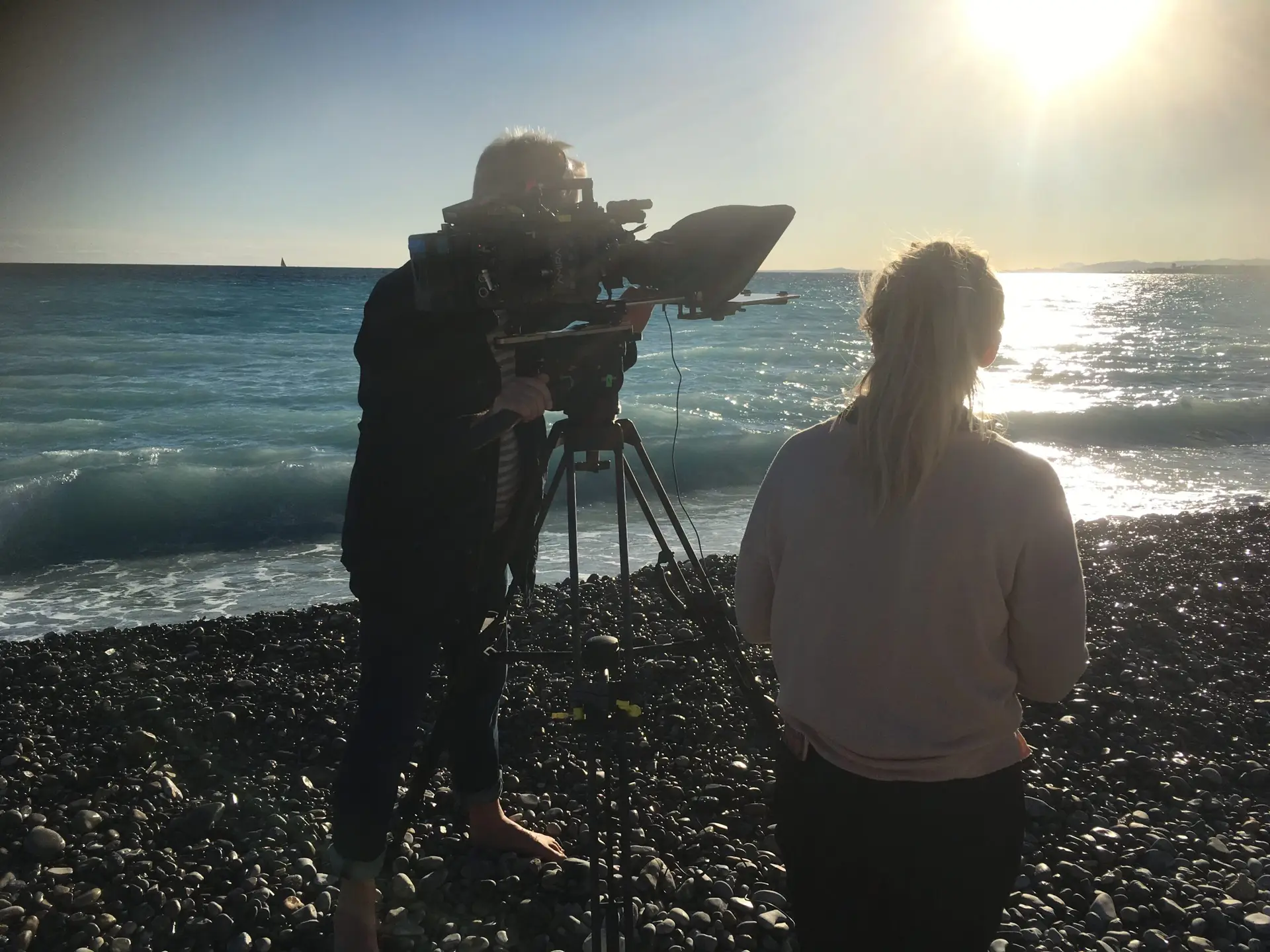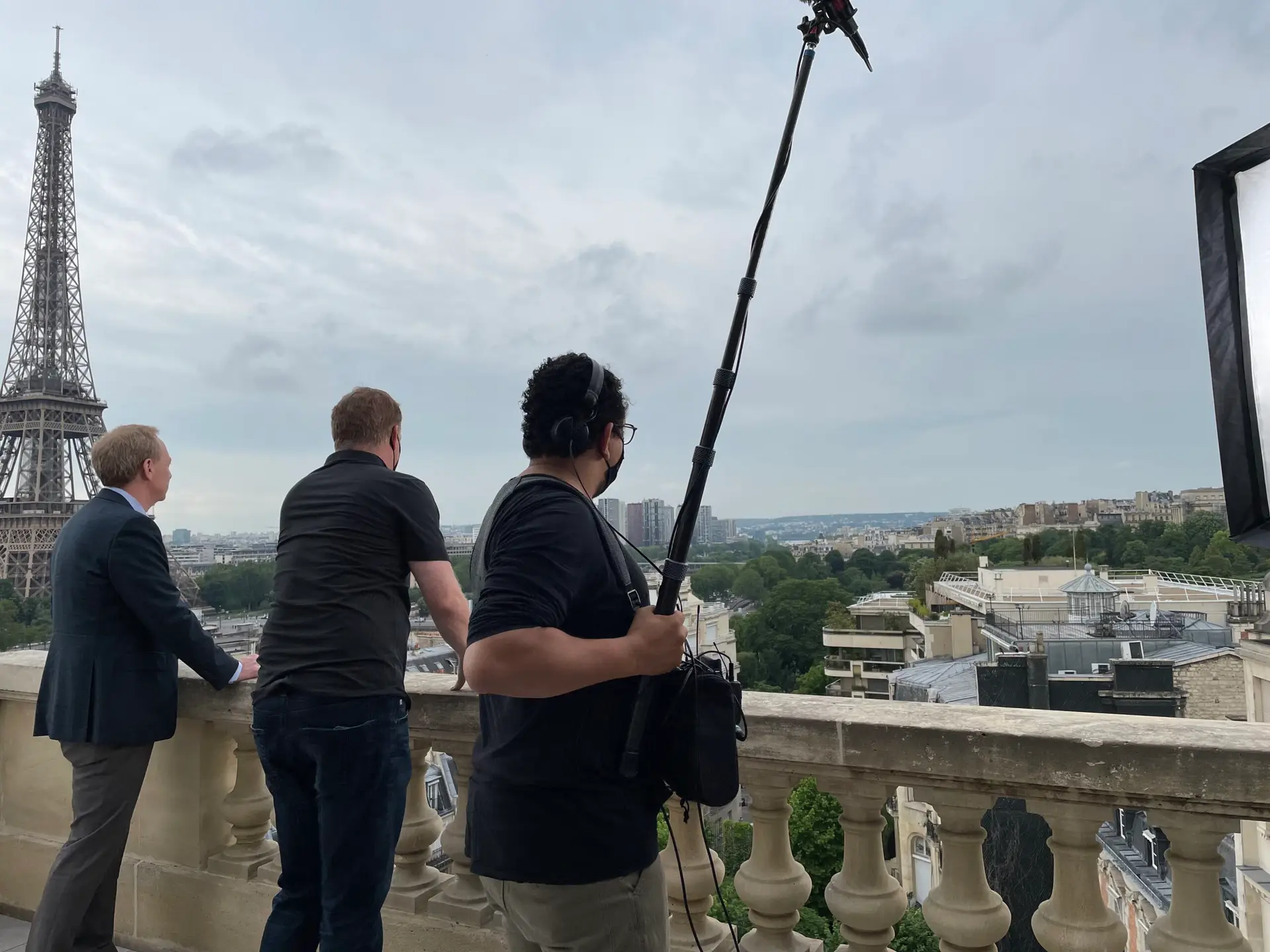Hiring crew In France
A rough Guide
Plugging bilingual experienced crew into your production.
Filming in France is relatively straightforward, but there are a number of rules and regulations to which you need to adhere when hiring French crew. This section provides a rough overview about hiring French crew and working in France*
Please note this does not constitute legal advice, and each case should be considered individually.
Please do contact us for specific guidance if you do not find the answers below.
Do foreign film crews need a work permit? Normally no.
Do foreign film crews need to register to work in France?
Only if you are employed by your company as staff or here long-term.
Freelancers working temporarily in France for Film & television do not need to complete SIPSI registration.
If you are travelling from outside the EU please consult your local Embassy for advice on visas and travel.
UK Workers who may be here on a longer term contract should fill out an A1 form here to transfer your national insurance rights across to the work you are doing in Europe:
Foreign Crew working on French soil
Registering to work , SIPSI and your obligations
In France when you hire any French registered technicians (intermittents de spectacle) you have to do a DUE Déclaration Préalable à l’Embauche ahead of the day they are employed which tells the state who is legally responsible for that freelancer during their “hire” and now it is the same for all foreign workers coming to France.
The French government have simplified this by creating the SIPSI portal.
* You must complete the details for your employees ONLY (not freelancers) IN ADVANCE of your shoot here: www.sipsi.travail.gouv.fr
* You must align your staff on location in France with the minimum legal union rates in France and this in respect of the legal hours for that rate (8/10 hours )
* You must schedule for legal hours and pay any overtime at the French union rate.
* If you are employing local French crew, on top of the legal minimum rates shown on the rate card there is a compulsary 65% of social charges added by the government for health care, retirement etc. national insurance contributions plus the cost of us filing these taxes on your behalf. (Fringes) which equates to about 8% per payslip / declaration.
Rates can seem more expensive in France than the UK or US, but in reality when you remove the government fringes, their take-home pay is very similar:
Taking an example of a PA on a rate of 200€ for a 10h day in documentary, the cost to you would be 356.40€ (including the 65% of social charges and 8% payroll / declaration fee)
They only get 200-about 30% of taxes, and social insurance charges, meaning that the PA that costs you 356€ per day ends up with about 140€ in their pocket for a 10h day.
You can download and view the French union legal minimum rates updated in July 2025 for freelancers by clicking here.
Tab A is for Cinema, Advertising, Branded Contentand Drama/Fiction
Tab B for TV including documentaries
Tab C for actors / musicians.

Work permits and Visas
Europeans do not need a work permit to film or work in France , see www.welcometofrance.com/en/do-you-need-a-work-permit)
Please note we are unable to assist with visas. The US Embassy no longer gives VISA advice to third parties. Applicants must send questions to their local Embassy (local state).
Non-Europeans on projects of 3 months or less do not need a work permit.
We do not advise on Visas simply because it is your home embassy which must advise you and in general they will only discuss with applicant.
The French "intermittent de spectacle" system explained.
In France freelancers as we know them in the UK and USA do not exist in Film & Television.
An individual cannot issue an invoice in France without having a registered company for very specific scope of work.
Some Film & TV industry professionals have their own French registered business to invoice in the manner of “Schedule D” staff in the UK (Consultants/Officially licensed Drivers /People who hire out gear etc.). However they are the minority and this is not how most of the Film & Television industry operates.
The majority of French crew are most often registered in the “Intermittents du Spectacle” scheme. This means “temporary workers of the entertainment industry”. Here let’s refer to those who work in this industry as “technicians” and not freelancers, because the term as applies to France is misleading. They are in fact not freelance but hired per job on a day by day basis, with a payslip, and those hours declared and filed to the government.
The government run scheme allows Film & TV freelancers to have unemployment support in the form of “dole payments” (unemployment pay) from a fund they pay into with each payslip/hours accrued. This means that between contracts and in “downtime” caused by seasonality or other reasons they received around 60% of their daily rate in order to not lose them to another industry while they seek their next film job. In this way the French Government supports the French film industry.
In order to gain access to this scheme, the technician must register with the unemployment agency and post 507 hours of relevant work in the industry within any 12 month period. Once these “hours” have been achieved and recorded at the National Unemployment office ‘France Travail” then they begin to be entitled to their unemployment pay between contracts.
Each year the technician must work to renew their status by achieving the number of hours (507 in 12 months). If they do not, they lose their status and relevant unemployment rights. Therefore people want to work as much as possible to keep their hours.
Technicians paid under this scheme have a base rate underpinned by the union rate card. The unions renew the rate card every six months as they agree new rules and regulations to safeguard workers.
Our job as producers is to stay across the newly published and agreed rates and terms. Our duty is to apply these for the fair treatment of all workers in the Film & Television industry. The base rate is not what the producer pays, not what the technician receives. The technician receives the base rate minus – 30% (approx) in net pay as explained in the example in the section just above.
Sometimes foreign clients ask us to align rates with their local country rates but the French union rate card is strict per genre (TV documentary and entertainment / Fiction and commerical / Social media and corporate). Therefore it is often not possible to reduce rates to what would be paid in US or UK. This is consequence of the choice of choosing to shoot in beautiful France, and accepting that the unions protect the staff here means a higher rate cost to Producers.
Are you a Crewing agency?
We are not a diary service nor booking agent, and tend to only book crew on the projects in which we have a larger involvement or scope.
We do sometimes book crew for our longstanding clients but when we hire crew to your production we are legally responsable for them, and if we aren’t on set to manage or oversee how the crew are asked to work, our insurance and accountability would nevertheless be engaged as soon as they are declared for work by The French Fix.
Looking for an experienced French Fixer?

Work permits and Visas
Europeans do not need a work permit to film or work in France , see www.welcometofrance.com/en/do-you-need-a-work-permit)
Please note we are unable to assist with visas. The US Embassy no longer gives VISA advice to third parties. Applicants must send questions to their local Embassy (local state).
Non-Europeans on projects of 3 months or less do not need a work permit.
We do not advise on Visas simply because it is your home embassy which must advise you and in general they will only discuss with applicant.
